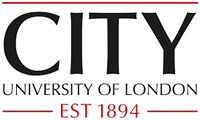About the Project
Dry eye disease (DED) is a progressive and chronic condition of the lacrimal and meibomian glands that leads to reduced aqueous tear production and increased tear evaporation. This results in hyperosmolarity and instability of the tear film, leading to damage of the ocular surface. Despite its widespread prevalence (20-30% and ever increasing due to digital devices), DED remains difficult to manage because of the apparent lack of correlation between commonly used clinical tests and patient-reported symptoms. With the commercialisation of a diagnostic test for in vitro assessment of tear osmolarity (TearLabTM Osmolarity System, TearLab Corp., San Diego, CA) there has been renewed interest in the clinical definition of DED and consequently its management.
Although the TearLab has previously been validated and used in clinical research, studies have yet to investigate
1. The effect of gender, digital device use, DED type and its management, type of contact lenses and care solutions, contact lens drop out, and medications on tear osmolarity;
2. The longitudinal effect of contact lens wear, material, modality and drop out on tear osmolarity;
3. The longitudinal effect of DED type and management of tear osmolarity.
Using one large (n>500), single-centred cross-sectional study and two prospective cohort studies (6-months each), we aim to investigate the three points above, retrospectively.
Recently we launched a fully-equipped private clinic at City Sight dedicated to DED management. Annually, >3,500 patients are seen at our student clinics. Based on a recent DED questionnaire, approximately 35% of our patients present with significant dry eye symptoms. We anticipate a full-time PhD student will be able to recruit 1,200 patients in 2 years, based on 6 patients per day/ 4 days per week/ 30 weeks per year.
This PhD will generate at least 3 publications in international peer-reviewed journals, shape City’s Dry Eye Clinic of Excellence a, plus generate revenue income for City Sight via the private dry eye clinic and treatments.
Recommended Skills:
1. Minimally 2 year qualified Optometrist (UK registered)
2. Experience in contact lens practice
3. Experience in dry eye management
Funding Notes
A doctoral studentship will provide:
• An annual bursary (£16,000 in 2016/17)
• All fees for PhD student registration paid for UK and EU students. Applications are welcome from overseas applicants but the applicant must make appropriate arrangements to cover the difference between the overseas and UK tuition fee
• Research costs up to £1000 over the three years.

 Continue with Facebook
Continue with Facebook

